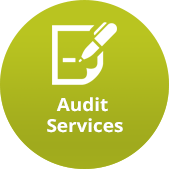September 2016 Edition
In this edition:

Tips and alerts for small business owners
Immediate asset write off
Small businesses can get an immediate tax deduction for nearly all individual assets purchased and installed ready to use in business by 30 June 2016 that cost less than $20,000. This measure is due to expire 30 June 2017.
For businesses registered for GST, the $20,000 threshold is calculated on a GST-exclusive basis, but for businesses not registered for GST, the threshold is calculated on a GST-inclusive basis.
If a small business elects to use the above accelerated depreciation system, any depreciating asset costing $20,000 or more will be automatically depreciated at a flat rate of 15 per cent in the year it was bought to the extent the asset is used for income-producing purposes, and is used or installed ready for use by 30 June 2016. The adjustable value of such an asset can be depreciated, on that basis, at 30 per cent in subsequent years.
Small business restructure rollover relief
From 1 July 2016, small businesses are be able to change the legal structure of their business without incurring any income tax liability when active assets are transferred by one entity to another.
This rollover applies to active assets that are CGT assets, trading stock, revenue assets and depreciating assets used, or held ready for use, in the course of carrying on a business.
Loans from private companies (Division 7A loans)
Payment or a loan, including debt forgiveness and transfer of company asset, by a private company (Pty Ltd) to a shareholder or an associate (e.g.: family members) can potentially attract income tax liabilities, unless an exemption applies.
One of the most common exemption is to enter into a written loan agreement requiring minimum interest and principal repayments over a specified loan term, which can be 7 years if unsecured, or 25 years if secured.
To minimise the risk of a shareholder or an associate deriving a deemed unfranked dividend, there are a few strategies that a private company can adopt before the due date of its 2015-2016 income tax return. These strategies may include repaying a loan, declaring a (franked) dividend or entering a complying loan agreement before the return needs to be lodged.
The rules around private company loans can be quite complex. Please contact our office for professional advice.
Becoming SuperStream compliant
Originally due on 1st July 2016, the ATO has extended the compliance deadline for small businesses further to become SuperStream compliant to 28 October 2016.
There is no change for larger employers as they already do this.
The data is to be in a standard format which can be transmitted consistently across the super system – between employers, funds, service providers and the ATO. It's linked to the payment by a unique payment reference number. You will be able to make all your contributions in a single transaction, even if they're going to multiple super funds.
There may be specific accounting software requirements to be SuperStream complaint.
If you are uncertain about the requirements or not prepared for SuperStream, please contact our office.
Contact details
Suite 401 29-31 Solent Circuit
Norwest Business Park
Baulkham Hills, NSW 2153 Australia
View location map
P:
(02) 9899 3044
F: (02) 9899 1524
About Us
Our Team Members are the heart and soul of our business. Our team's guiding principles are integrity, respect, teamwork, achievement and innovation. Our guiding principles are the keys to our culture and to achieving our vision.
Resources
We offer a range of free and easy to use
online resources and tools including...











